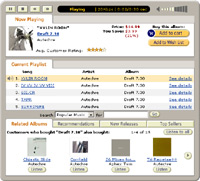Gartner are predicting healthy business for the worldwide mobile phone market this year, since 153 million unites were sold win the first quarter of 2004, up 34% on the same period last year.
“Another record quarter of mobile phone sales resulted from an Asia/Pacific market buoyed by purchases for the Chinese New Year, healthy growth in emerging markets and surprising numbers of people in mature markets choosing to upgrade their phones,” said Ben Wood, principal analyst for mobile terminals research at Gartner. “Based on first quarter results, we believe worldwide mobile phone sales will exceed 600 million units in 2004.”
The top five phone vendors (Nokia, Motorola, Samsung, Siemens and Sony Ericsson) all saw increases this year, though Nokia lost 5.7% of its market share. Nokia’s bad news is possibly attributable to a less than dazzling range of products this year and a number of network operators in Western Europe sourcing their phones from the Finnish company’s competitors.
Mobile phone sales in North America grew 30%, with customers opting for colour displays and integrated cameras, demonstrating that America is catching up with Europe both in percentage penetration and the sophistication of the handsets available.
 Amazon.com have quietly rolled out a nifty new music preview feature, allowing much more convenient previews than before. The site’s erstwhile preview system was always a bit hit and miss, lacking in some obvious functions, but the new system, comprising of a pop-up box control panel with more than a whiff of iTunes about it is much better and demonstrates that it’s not just the better download sites that allow you to try before you buy.
Amazon.com have quietly rolled out a nifty new music preview feature, allowing much more convenient previews than before. The site’s erstwhile preview system was always a bit hit and miss, lacking in some obvious functions, but the new system, comprising of a pop-up box control panel with more than a whiff of iTunes about it is much better and demonstrates that it’s not just the better download sites that allow you to try before you buy.